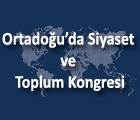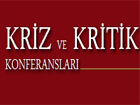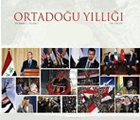How the US and Israel are Trying to Bring Iran to its Knees
Since the beginning of Trump’s presidency, the U.S. has put enormous effort to contain Iran in both political and economic terms. During his election campaign, Trump pledged to tear the nuclear deal (JCPOA) and his anti-Iran tone was pretty harsh. After his election, he started to realize his election promises one-by-one. His attitude towards international acts and agreements was uncompromising. The U.S. withdrew from the Paris Climate Agreement, Trans-Pacific Partnership (TPP), and UNESCO in 2017. JCPOA, which was formalized in 2015 by P5+1 countries and which began to be implemented in early 2016, was a target too. JCPOA was also binding in terms of international law since it was ratified as a UN Security Council resolution.
Trump’s general policy choice reflects a radical rupture from the priorities of the Obama era, and this is not an exception in the case of the Middle East. The president’s Middle East policy centers around various crucial themes. The most significant of them is containing Iran. For Trump, Iran has expanded its regional influenced during the Obama era thanks to the “worst deal ever made,” also known as the nuclear deal. According to Trump, by giving Iran lifeline support, JCPOA has paved the way for Iran’s “terrorist activities” along the region. Therefore, this should be stopped.
With the Trump administration, the U.S. government has launched a regime change discourse against Iran. The president has employed numerous anti-Iran figures in his team such as Mike Pompeo, John Bolton, Rudy Giuliani, and others.
The U.S. President’s policy is a pillar for other policies related to the Middle East. Saudi Arabia and other anti-Iran Gulf countries desperately seek Trump’s support in their endeavor to confront Iran. In this direction, the U.S. makes billion dollar arms deals with Saudi Arabia and supports every action against Iran in the region. Saudi Arabia’s Qatar move, which was directly against Iran and Turkey, also received U.S. support. The coordinated efforts of Israel and the U.S. function to undermine Iran’s political and economic power. Accordingly, I argue that Trump’s Iran policy has two dimensions – both politic and economic.
The nuclear deal and economic war against Iran
On May 8, Donald Trump announced that the United States has pulled out of the nuclear deal. He also announced that sanctions will be re-imposed by the U.S. soon. The first round of U.S. sanctions came into effect on July 7. These sanctions were primarily targeting Iran’s trade with precious metals, its import of auto parts, and commercial passenger aircrafts. But the most striking sanctions were imposed on November 5. The aim of these sanctions was to cut all oil exports from Iran and devastate the country’s economy. In addition to that, 700 individuals and companies were put on the sanctions list. In order to avoid serious backlash, the U.S. granted waivers to 8 countries, including Turkey. However, these countries will also be expected to cut their oil trade with Iran in a short period of time.
Trump was not alone in his campaign against Iran. Benjamin Netanyahu, the Prime Minister of Israel, also fully supported his decision of exiting the JCPOA. More, prior to Trump’s decision, he tried to persuade the international community that “Iran has lied” about its nuclear activities and that it “cheated.” Netanyahu, in his televised public performance a week before Trump’s announcement of U.S. withdrawal from the deal, claimed that Iran had lied when it said that it never chased after a nuclear weapon. He added that, “Even after the deal was made, Iran continued to preserve and expand its nuclear know-how for use at a later date.” His claim was based on an alleged secret operation conducted by MOSSAD to acquire “atomic archive documents” in a secret warehouse in Tehran. Netanyahu’s efforts were not limited to this performance. Again in September, when he stepped to address the UN General Assembly, he claimed that Israel had discovered another secret nuclear facility in Tehran and that he had proof of it. According to Netanyahu, Iran had equipment for developing a nuclear bomb in this facility.
Regime change discourse, Arab NATO, and the Warsaw Summit
With the Trump administration, the U.S. government has launched a regime change discourse against Iran. The president has employed numerous anti-Iran figures in his team, such as Mike Pompeo, John Bolton, Rudy Giuliani, and others. The State Department’s and Secretary Pompeo’s Twitter accounts work vigorously to disseminate regime change discourse among Iranians, be it diaspora or those living in the homeland. In addition to that, in 2011, the U.S. had launched its first Farsi language Twitter account in order to address Farsi-speaking Iranians directly. Pompeo and his team began to use this account to promulgate their position against Iran. All these efforts are signs of a public relation campaign to create a dominant discourse, which would produce an intended change in the Iranian government’s behavior.
Iranian women took off their hijabs and hang them on a stick during their protests in Tehran. Some Iranian diaspora, however, questioned the authenticity of these protests and the integrity of Masih Alinejad for having ties with U.S. neo-cons.
In this endeavor, the U.S. government takes any opportunity it can. U.S. Secretary of State Mike Pompeo met with Masih Alinejad, a famous Iranian-American social media activist. Alinejad runs the #whitewednesday campaign, which encourages women to take off their hijabs in Iran on Wednesdays and record it with a camera. Women share these videos on social media and Alinejad also promotes them on her own Twitter account. These videos go viral and show how Iranian women resist imposed dress codes. During the protests in January 2018, the Iranian women that took off their hijabs and hang them on a stick began to be called the “daughters of Revolution Street,” since their protests occurred on the revolution street of Tehran. However, some of the Iranian diaspora have questioned the authenticity of these protests and the integrity of Masih Alinejad for having ties with U.S. neo-cons. Pompeo’s meeting with Alinejad empowered the arguments of their critics. This move apparently shows how Alinejad’s campaign functions in a certain way in the regime change rhetoric of the U.S. administration.
Another policy that the Trump administration has adopted is trying to pull other countries on their sides against Iran. In that vein, the U.S. and Israel organized an anti-Iran summit in Warsaw on February 14. 60 countries were represented at the Summit. However, EU states sent their low-level diplomats and it disrupted the summit’s intended anti-Iran character. Robert Giuliani, former New York Mayor and one of Trump's lawyers, said that he was representing Mujahedin-e Khalq Organization (MEK) at the summit. MEK is designated as a terrorist organization by Iran. It was once listed as a terrorist organization by the U.S. in 1997, but was then de-listed in 2012. In the recent years, Trump’s team has been coordinating with MEK members and their presence was so visible in so many occasions, including during the Warsaw Summit.
Robert Giuliani, former New York Mayor and one of Trump's lawyers, said that he was representing Mujahedin-e Khalq Organization (MEK) at the anti-Iran summit in February in Warsaw. MEK is designated as a terrorist organization by Iran.
One of the functions of the Warsaw Summit was to create a base for a new regional security alliance against Iran. This has been articulated as the “Arab NATO” by some U.S. officials. Officially known as the Middle East Strategic Alliance (MESA), this planned organization would contain Iran militarily through six Gulf countries plus Egypt and Jordan. Netanyahu especially took the chance to bolster his anti-Iran position and convince other Arab countries “to advance the common interest of the war with Iran.” According to Mike Pence, along with Netanyahu, they “broke bread with leaders from Bahrain and Saudi Arabia.” Given the diplomatic gap between Israel and other Arab countries (it only has formal diplomatic ties with Egypt and Jordan), Netanyahu’s efforts were reflecting a significant re-orientation towards Arab countries in order to confront Iran.
Turkey’s stance
Turkey’s approach to the U.S. policy on Iran has not been changed from the very beginning. President Erdogan repetitively emphasized that Turkey needs Iranian oil and gas and that there are no alternatives for Turkey. Erdogan also condemned the re-imposed sanctions on the ground that they are against international law. The president’s remarks have been reiterated by a number of senior figures in the government. Despite the fact that the U.S. and Israel will increase their pressure on Iran, Turkey is likely to preserve its position.
[TheNewTurkey,16Mart2019]






